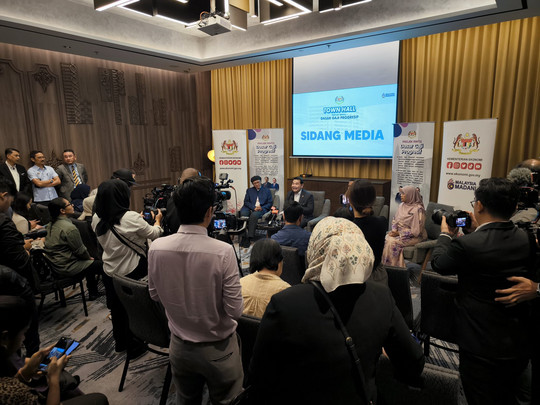The PWP, which began in June and will finish its pilot stage in September in Malaysia, is a voluntary programme targeted at micro, small, and medium enterprises, with the objective of boosting wage growth, productivity, and skills development.
The Malaysia PWP policy outlines the establishment of tripartite committees of unions, employers, and the government, to review the wages and conditions of affected workers. IFJ, as the global body of journalist trade unions, notes that Malaysia’s historical approach to wages policy has been the antithesis of such an approach, with minimal worker representation. But both the IFJ and NUJ assert any new, progressive approach must make worker and union representation central to discussions with media employers and government.
The IFJ said the inclusion of the media sector was an important development as the future sustainability of the country’s industry looks increasingly fragile. Rising wage precarity and job contractualisation, particularly for young workers, documented wage payment delays, and forced use of executive contracts to block unions to allow for fair collective wage negotiation are some of the key issues documented by IFJ and NUJ. The situation for Malaysia’s journalists and media workers is further challenged by media company fragility and widespread job losses that have decimated union membership and negotiating power. The IFJ and NUJ say right to association and form unions is a clear and vital need.
IFJ surveys of media workers in Malaysia have found that media ownership remains the single biggest driving influence on the declining safety situation for journalists, with their livelihoods dependent on the fortunes of political parties either by direct ownership or government advertising. An example was the 2019 collapse of the Utusan media group when the Barisan Nasional coalition lost the country’s leadership after four decades in power. The majority stakeholder of the company was the UMNO political party, which was part of that coalition. Over 800 media jobs were lost when it closed.
A report by the ISEAS Yusof Ishak Institute published ahead of the PWP pilot found that the state of wage growth in Malaysia, specifically concerning low to middle-wage workers earning above minimum wage, wage-setting institutions, and worker bargaining power, were key issues warranting close examination. It said Malaysia trailed China, Indonesia, Thailand, and Vietnam in terms of real wage growth and workers’ bargaining power was severely curtailed by a dismal two per cent union membership in the private sector. Low union membership and small unions generally translate into poorer contracts and lower wages overall, it said.
The structured wage incentive program is based on Singapore’s Progressive Wage Policy. Tabled in November 2023 by Malaysia’s economic minister, the PWP White Paper outlines a program estimated at costing the Malaysian Government between RM2 billion (USD approx. 450 million) to RM 5 billion (approx. USD 1.1 billion) per year. The core idea is that companies that pay employees at or above the government-determined wage, the government will recompense them in part for entry-level positions and non-entry level positions for six months, limited to a wage ceiling of RM5,000 (USD 1,127). Its goal is to push the country’s median wage to RM2,700/month (USD 606) by 2025 and generate 3.7 percent annual productivity growth by 2025.
The IFJ said: “An important element in the present proposal is that it provides scope for addressing a range of issues of concern to particular classes of workers - in this case, journalists and media workers. These issues go beyond traditional minimum wage and basic conditions of employment for the low-paid. This is of critical importance for journalists and media workers because of the peculiarities of their profession.”
The IFJ and NUJ are also seeking Malaysia’s government commitment to endorse and implement the IFJ-led International Convention on the Safety and Independence of Journalists and Other Media Professionals.
An IFJ 2022 analysis of Malaysia’s media found that a major overhaul, repair and amelioration of the current situation in Malaysia requires different sectors must come together to improve the media landscape for media workers.
The NUJM said: “A tripartite collaboration is essential to address the unique challenges faced by media workers, including the contractualisation of wages and job security, as well as the broader impact of media ownership on journalistic independence. The NUJM also want to highlight that the financial stability and wage security of media professionals are the basis of sustainability and freedom for the press in Malaysia.”
The NUJM and IFJ are advocating for the Malaysian government's commitment to not only the PWP but also to broader international standards, such as the IFJ-led International Convention on the Safety and Independence of Journalists and Other Media Professionals.
The NUJM said: “This dual focus highlights the NUJM's dedication to improving both the economic conditions and the safety of journalists, ensuring that the media sector in Malaysia can thrive in a fair, secure, and independent environment.”
The IFJ said: “If the present PWP proposal is to be successful, it must make worker and union representation a central feature of the process. There can be no media freedom without financial stability and wage security for all media workers. The IFJ joins the NUJM in underlining the importance of a tripartite working party to discuss the implementation of the PWP objectives in the media in Malaysia.”

